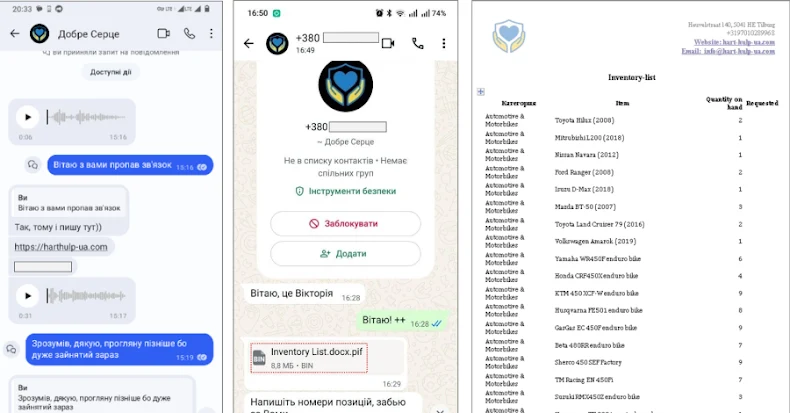In a concerted international effort to combat cybercrime, the U.S. Department of Justice (DoJ), in collaboration with law enforcement agencies from the Netherlands, Finland, France, Germany, Denmark, Portugal, and Ukraine, has successfully seized four domains instrumental in providing crypting services to cybercriminals. This operation, executed on May 27, 2025, marks a significant stride in disrupting the infrastructure that enables malicious actors to evade detection by security software.
Understanding Crypting Services and Their Role in Cybercrime
Crypting services are specialized tools designed to obfuscate malware, rendering it undetectable by antivirus programs and other security measures. By employing these services, cybercriminals can ensure their malicious software remains concealed, facilitating unauthorized access to computer systems and networks. The seized domains—AvCheck[.]net, Cryptor[.]biz, and Crypt[.]guru—were identified as key platforms offering such services to the cybercriminal community.
Details of the Seized Domains
– AvCheck[.]net: Marketed itself as a high-speed antivirus scantime checker, allowing registered users to scan files against 26 antivirus engines and check domains and IP addresses against 22 antivirus engines and blocklists. This service enabled cybercriminals to test and refine their malware to ensure it could bypass security defenses effectively.
– Cryptor[.]biz and Crypt[.]guru: These platforms provided similar crypting services, offering tools that allowed malicious actors to encrypt their malware, making it more challenging for security systems to detect and analyze.
The Mechanism of Crypting Services
The process of crypting involves using software to modify malware code, altering its signature to evade detection by security tools. This obfuscation allows cybercriminals to deploy their malicious payloads without triggering alarms, leading to data breaches, financial theft, and other cybercrimes. The availability of such services lowers the barrier to entry for less sophisticated attackers, contributing to the proliferation of malware attacks globally.
Operation Endgame: A Coordinated International Response
The domain seizures were part of Operation Endgame, an ongoing global initiative launched in 2024 aimed at dismantling cybercrime networks. This operation represents the fourth major action in recent weeks, following the disruption of Lumma Stealer, DanaBot, and the takedown of hundreds of domains and servers used by various malware families to deliver ransomware.
Statements from Law Enforcement Officials
FBI Houston Special Agent in Charge Douglas Williams emphasized the significance of this operation, stating, Cybercriminals don’t just create malware; they perfect it for maximum destruction. By leveraging counter-antivirus services, malicious actors refine their weapons against the world’s toughest security systems to better slip past firewalls, evade forensic analysis, and wreak havoc across victims’ systems.
The Impact of Crypting Services on Cybersecurity
The existence and accessibility of crypting services pose a substantial threat to global cybersecurity. They enable cybercriminals to enhance the effectiveness of their malware, leading to increased incidents of data breaches, financial fraud, and disruption of critical infrastructure. By obfuscating malicious code, these services undermine the efficacy of traditional security measures, necessitating continuous adaptation and innovation within the cybersecurity industry.
The Role of Malware-as-a-Service (MaaS) in Cybercrime
The takedown of these domains also sheds light on the broader ecosystem of Malware-as-a-Service (MaaS), where cybercriminals offer tools and services to other malicious actors. For instance, eSentire detailed PureCrypter, a MaaS solution used to distribute information stealers like Lumma and Rhadamanthys. Marketed on Hackforums[.]net by a threat actor named PureCoder, PureCrypter is available for purchase with various subscription plans, highlighting the commercialization of cybercrime tools.
The Importance of International Collaboration
The success of this operation underscores the critical importance of international collaboration in combating cybercrime. Cybercriminal networks often operate across borders, making it essential for law enforcement agencies worldwide to work together to disrupt and dismantle these operations. The coordinated efforts of multiple countries in this case demonstrate a unified commitment to enhancing global cybersecurity.
Looking Ahead: Strengthening Cybersecurity Measures
While the seizure of these domains represents a significant victory, it also highlights the ongoing challenges in the fight against cybercrime. As cybercriminals continue to develop and refine their tactics, it is imperative for the cybersecurity community to remain vigilant and proactive. This includes investing in advanced detection technologies, fostering information sharing among organizations, and promoting cybersecurity awareness and education.
Conclusion
The U.S. Department of Justice’s seizure of domains facilitating crypting services marks a pivotal step in disrupting the tools that enable cybercriminals to evade detection. Through international cooperation and coordinated efforts, law enforcement agencies have demonstrated their commitment to combating cybercrime and protecting global digital infrastructure. However, the dynamic nature of cyber threats necessitates continuous vigilance and adaptation to safeguard against future attacks.



